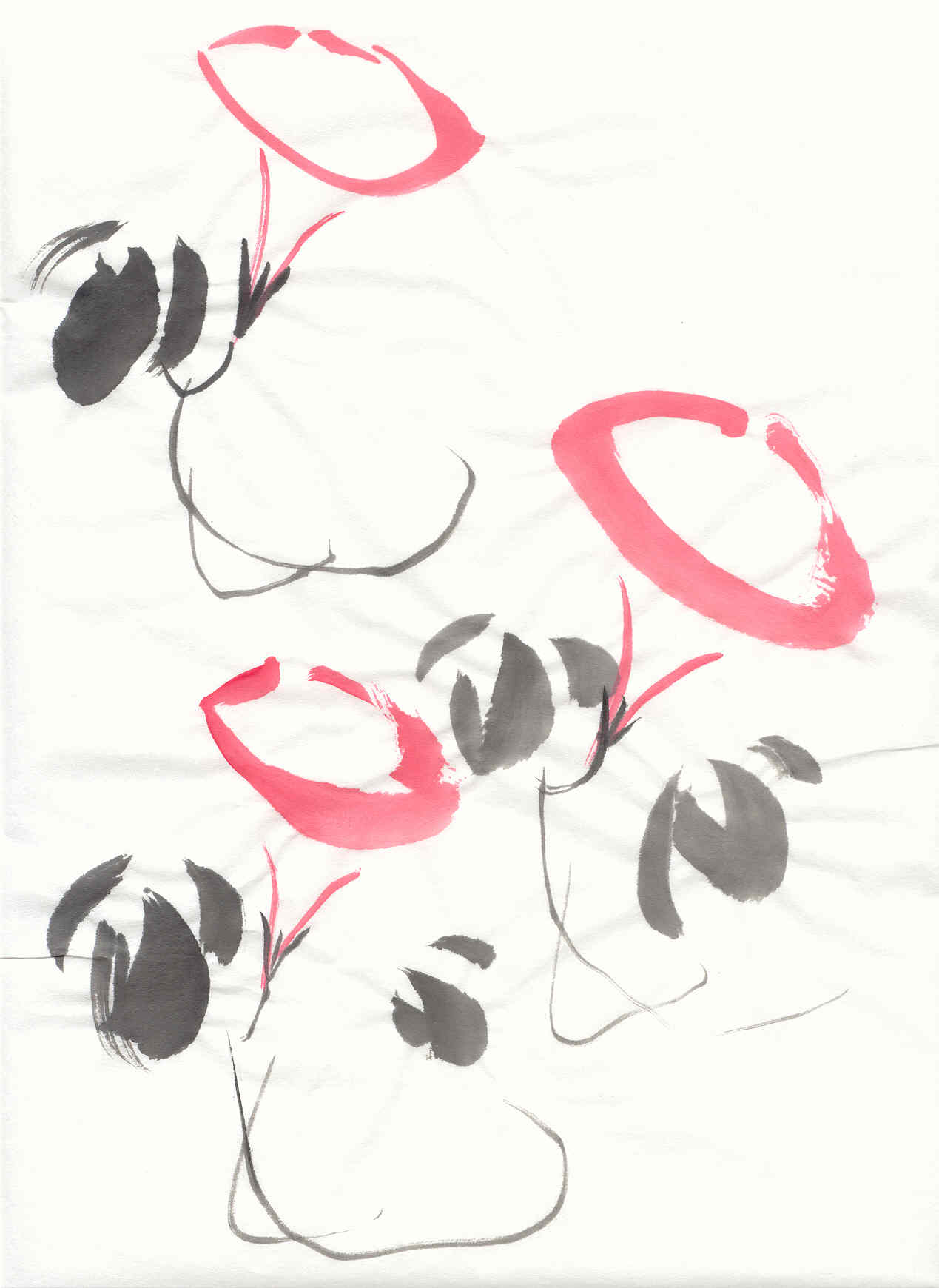Takeshi Asai's Japanese Newsletter - Slang and Idioms
 Since language represents culture, learning Japanese includes a bonus: it teaches you about the singular Japanese culture that has been evolving for 2000 years. Without understanding what's behind the language, you will never truly learn the language. One of the best ways to understand the relationship between culture and language is to study idioms.
Since language represents culture, learning Japanese includes a bonus: it teaches you about the singular Japanese culture that has been evolving for 2000 years. Without understanding what's behind the language, you will never truly learn the language. One of the best ways to understand the relationship between culture and language is to study idioms.
Perhaps the biggest cultural difference between Japan and America is the fundamental value representing social organization. Whereas Americans prize individual differences, the Japanese revere group conformity. Consider Japan's ancient name, Yamato. Literally, it means "Big Harmony." The following three idioms illustrate this value best.
"Deru kui wa utareru" (the stake that sticks up will be pounded down). Because Japanese people generally discourage differences, someone who draws individual attention often evokes jealousy. However, increased competition in the international market requires a change in the traditional thought. In an effort to compete with American companies, some Japanese CEOs have restated the idiom as "Deru kui wa utsuna" (Don't pound down the stakes that stick up).
"Nemawashi" (preparing the roots for transplanting). "Ne" means root, "mawashi" means to circle. This word is a "bonsai" term, bonsai being the Japanese traditional art of growing dwarfed ornamental trees in shallow pots. Japanese people never discuss issues in public. If they want to bring up a new idea in a meeting, they must talk to key figures before the meeting. That is, they must prepare the "roots" thoroughly to obtain a consensus. Otherwise, they will be in danger of wrestling "hitorizumo."
"Hitorizumo" (one-man sumo). "Hitori" means one-person, "zumo" means sumo. As you know, sumo is a traditional Japanese form of wrestling played by two people. Obviously, you cannot wrestle by yourself. Therefore, this idiom is used to show that trying hard without the support of others is pointless in the land where conformity rules.
Food is another measure of culture. Next to communicating in a foreign land, travelers worry if they will like the food. The Japanese are world renowned not only for the kinds of food they prepare but also for the beautiful way they serve it. In fact, it is an art. Sushi chefs, for instance, must apprentice for years. Furthermore, Japanese cuisine has produced one of the healthiest diets in the world. The next three idioms include references to foods found all over Japan.
"Sushizume" (packed like sushi). Have you ever seen a sushi lunch box? If you live in big cities in Japan, the streets are crowded, the trains are packed, and the express highways are jammed...just like sushi in a lunch box. This idiom is similar to the American expression "packed like a can of sardines."
"Sashimi no tsuma" (a garnish for raw fish). Who doesn't know sashimi? "Tsuma" is the name of a garnish made of daikon, a big white radish, shredded and arranged on a sashimi platter. Most people don't eat it or even pay attention to it. Consequently, this idiom means insignificant participant, or uninfluential presence. If you are a "sashimi no tsuma," you would not be involved in "nemawashi" at all.
"Asameshi mae" (before breakfast). "Asa" means morning, "meshi" means cooked rice, "mae" means before. Traditionally, Japanese people eat rice for their breakfast as a source of energy for the day. Tasks that you can complete before breakfast are the ones that you can do without any effort. This idiom is the Japanese version of "a piece of cake."
Most of the idioms mentioned above come from the Edo period (1600 - 1868), when Japan was isolated from the outside world. However, any language constantly evolves and Japanese is no different, especially when influenced by other cultures, typically through trade. In fact, the absorption of foreign words has changed Japanese rapidly. For example, thousands of Chinese words and characters were imported in the 8th to 12th centuries, Portuguese vocabulary came in the 16th century, and English in the 20th century.
Here is the best example of modern slang made from an English word: "Naui." Guess what it means. "Nau" is the English word "now"; "I" is the suffix that makes nouns adjectives. Therefore "naui" is a Japanese word that means modern, up-to-date, or fashionable. Even though it has an English origin, once it's pronounced, you may be surprised how Japanese it sounds. In order to get an authentic Japanese sound, you should pronounce every vowel clearly, saying na-u-i.
If you use some of these expressions when you talk with Japanese people, you'll surely hear, "Nihongo o-jozu desu ne!"
published as Japanese Monthly, February 2000 issue
edited by Marcia Allen
Sources:
101 Japanese Idioms by Michael L. Maynard & Senko K. Maynard (1993 by NTC Publishing Group)
The American Heritage College Dictionary, Third Edition (1993 by Houghton Mifflin Company)
Back to Japanese Newsletters Home Page
Back to Top Page of Takeshi Asai's Website
 Since language represents culture, learning Japanese includes a bonus: it teaches you about the singular Japanese culture that has been evolving for 2000 years. Without understanding what's behind the language, you will never truly learn the language. One of the best ways to understand the relationship between culture and language is to study idioms.
Since language represents culture, learning Japanese includes a bonus: it teaches you about the singular Japanese culture that has been evolving for 2000 years. Without understanding what's behind the language, you will never truly learn the language. One of the best ways to understand the relationship between culture and language is to study idioms.